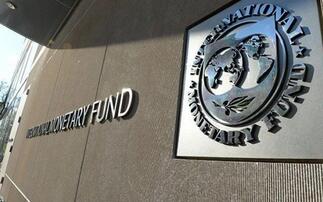Fund managers give their view on how recent market events have affected their portfolios and reveal where they are finding the best buying opportunities.
 James McDaid, investment manager, GAM
James McDaid, investment manager, GAM
Japan and Europe
Given the whipsawing nature of current market moves, we have not made major asset allocation changes to our strategies.
Low liquidity levels over summer can often lead to exaggerated moves, but recent volumes have been higher than normal and it would appear an ETF-related selling frenzy has been a catalyst for moves lower.
Within equities, we have notable exposure to Japan and Europe, which should be beneficiaries of continued accommodative monetary policy. Indeed, as we write this, the Chinese authorities have just announced a rate cut in a bid to quell the recent market anxiety.
With an imminent rise in US rates, whether it be in September or December, we are cautious on traditional fixed income and our exposure has been tilted more towards low duration instruments such as mortgage-backed securities and floating rate notes.
 Mikhail Zverev, head of global equities, Standard Life Investments
Mikhail Zverev, head of global equities, Standard Life Investments
Buying opp for commodities
Recent market moves are symptomatic. Neither the China market fall nor renminbi devaluation on their own can justify the reaction. Chinese stocks are not held widely enough to cause any systemic 'wealth effects'. And the renminbi devaluation impacts exporters and companies selling into China, but with limited systemic impact.
China needs to transition from its reliance on export and investment to a more consumer-led economy, while maintaining economic growth. Therefore, any perceived policy mistake is highly scrutinised.
For us the rout is a buying opportunity, not a market inflection. Globally, the China slowdown is creating headwinds for industrial capital goods and commodities. But we see no shortage of stock-specific investment opportunities in our broader investment universe.
 Colin McLean, managing director, SVM Asset Management
Colin McLean, managing director, SVM Asset Management
Healthcare and tobacco
August, with its thin markets and lack of corporate news, can often produce panics or squeezes. But relatively little has emerged that represents a material change of trend. Oil, metals, and commodities, have been over-represented in some indices such as the FTSE 100.
China still has scope in its policy tools. The underlying pattern is of global deflation, encouraged by poor productivity growth globally.
We are relatively fully invested, but have been increasing allocations to healthcare, tobacco and telecoms. We have very low exposure to oil and mining. The largest global businesses may be the most impacted by deflation, currency moves and weakness in emerging economies. We expect more stimulation to encourage growth.
 Nathan Sweeney, senior investment manager, Architas
Nathan Sweeney, senior investment manager, Architas
Absolute Return funds
We believe the Chinese government should have sufficient firepower to avoid a recession. Globally, these recent market moves are more likely to be a temporary correction rather than the start of a prolonged downturn, and as such might represent a good buying opportunity.
Our portfolios are built for the long term, but we are keeping a close eye for any short-term tactical opportunities. We have recently reduced our European and emerging markets equity allocation in favour of US exposure across most portfolios and have been steadily increasing our cash positions since April.
On the fixed income side, we have increased our allocation to absolute return bond funds as we believe their flexibility is well suited to this volatile environment.
 Peter Toogood, investment director, City Financial
Peter Toogood, investment director, City Financial
Emerging markets
Last week was a collective recognition by investors that all is not right with the world. The emerging market debt problem mimics the developed world in 2008, and their mercantilist and commodity-heavy dependence has been brutally exposed.
Deflationary pulses abound from the emerging world, which has collectively failed to take advantage of the growth gift from the previous decade to undertake genuine supply side reforms.
Equally, central bankers have encouraged the view that you can defy the economic cycle with ever greater money flooding the system. It was Einstein who said "the definition of insanity is to do the same thing over and over again and expect different results".
The deflation spectre will spook credit and equities alike - corporate balance sheets are in no position to survive deflation - see corporate Japan in the 1990's for reference.
Another bout of hurried easing by central banks and particularly the Chinese seems likely, providing some relief for investors but not getting to the root cause of the problem.
Times are set to remain challenging but pockets of value are slowly emerging. For example, energy and, selectively, some emerging markets such as Mexico and Indonesia, which have taken some of the hard decisions on supply side reform.
 David Appleton, investment director, Cornelian Asset Managers
David Appleton, investment director, Cornelian Asset Managers
Cash weighting
We have materially de-risked client portfolios over the past year and are currently defensively positioned. Exposure to equities and related asset classes such as private equity and convertible bonds has been reduced significantly.
We have been cautious for some time on the prospects for emerging markets and remain notably underweight. Proceeds from sales have been largely retained as cash to preserve capital, while also providing capacity to take advantage of any opportunities that emerge should markets weaken further.
One area we have been adding to is absolute return, or hedge fund strategies. Rising volatility should enhance the opportunity set for managers to generate returns that have historically shown limited correlation with other asset classes.
In fixed income, we continue to struggle to find absolute value in government bonds and favour unconstrained bond funds where managers can utilise a broad range of tools to manage interest rate and credit risk, while still generating an attractive yield.
 James Klempster, portfolio manager, Momentum Global Investment Management
James Klempster, portfolio manager, Momentum Global Investment Management
Diversifying
The past month has been a salutary reminder that both macroeconomic events and trends are difficult to predict and furthermore, that there is no direct, linear relationship between economic news and the performance of markets.
For example, it was only a few months ago that markets were rallying on patchy US economic data on the premise that monetary policy would have to be looser for longer. Now the market appears fixated on the bad news coming out of China.
All in all, periods like this are a reminder of the importance to stay focused on valuation levels, and of the need to invest with conviction in areas that look cheap in a variety of possible economic scenarios.
Furthermore, remembering to take advantage of diversification is the closest thing to a free lunch afforded to us by the markets. Conviction is important, but so is the avoidance of over-concentration of particular portfolio risks.
 Lucy Walker, manager - fund of funds, Sarasin & Partners
Lucy Walker, manager - fund of funds, Sarasin & Partners
Holding cash
Heightened economic and policy uncertainty in China appears the main driver behind the recent market falls. The recent 3% renminbi devaluation against the dollar made headlines, but it was largely a change in calculation method, and to provide some context, the euro has moved almost 20% in the past year.
Recent economic data out of China is also largely unchanged, and so we suspect a more likely driver is the lack of any correction in the S&P in almost four years, suggesting investors were seeking more value in markets.
Most asset classes remain expensive in absolute terms, including equities, even after the recent falls, and so we continue to hold relatively higher levels of cash in portfolios. We will be watching the Chinese central bank closely to see how they handle downward pressure on the currency and tackle other market-oriented reforms in the face of a slowing economy.
 Philip Saunders, co-portfolio manager, Investec Multi-Asset Protector fund
Philip Saunders, co-portfolio manager, Investec Multi-Asset Protector fund
Defensive equities
Stock market concerns about the onset of a global recession are overdone and thus this episode is more likely to prove a healthy correction than the onset of something more sinister.
The evidence suggests economic conditions are gradually improving in the developed world at a sufficient pace to offset the deceleration in the pace of growth in the emerging world, which has been impacted by, among other factors, the sharp decline in the Chinese growth rate.
Even prior to the developments in China that unsettled markets, investors had progressively been reducing risk in their portfolios from the levels in the first quarter. This has been evidenced in sentiment and positioning surveys, declining developed market government bond yields and a preference for expensive defensive sectors within equity markets.
This did not prevent another severe bout of risk aversion, but the move is probably more mature than the pessimists fear. So, macro fundamentals remain supportive, valuations are reasonable to good and investor positioning, already defensive, suggests a bounce-back in prices.
 Fabrizio Quirighetti, head of multi-asset & fixed income, CIO, SYZ Asset Management
Fabrizio Quirighetti, head of multi-asset & fixed income, CIO, SYZ Asset Management
Europe bright spot
We are not officially in risk-off mode and therefore have not changed our central scenario as yet. But neither are we using the full risk budget available in our multi-asset portfolios.
Our investments are focused on top quality and liquid assets. We have reinforced the funds' resilience by further avoiding emerging market or commodities related assets (for both bonds and equities), small-cap equities and low credit quality bonds.
Correlation between government bonds and equities has turned back into negative territory, helping us to control overall volatility. We have rebalanced somewhat out from equities and into bonds.
In terms of economic surprise and growth expectations, the bright spots are Europe (especially peripheral economies) with now close to 2% growth expected and Japan (domestic economy revival following the digestion of the VAT tax hike).
 Tom Walker, portfolio manager, Martin Currie Global Portfolio trust
Tom Walker, portfolio manager, Martin Currie Global Portfolio trust
Developed markets
The FTSE World index has fallen about 15% since its peak on 16 April. This is the largest market correction we have seen since July/August 2011 and cannot be dismissed lightly. However, the recent concerns around the Chinese economy, which seem to have triggered the current market sell-off, are, in my opinion, overdone.
China will continue to transition from an export-driven to a consumption-driven economy and that will entail slower growth than we have seen in the past. The US economy and, to a lesser extent, the UK economy are improving and the eurozone is no longer deteriorating. Furthermore, monetary policy should remain supportive of markets.
Indiscriminate selling of the market throws up stock opportunities, but my preference remains for quality compounders over highly cyclical stocks and for developed over emerging market earnings. Overall, my expectation is that the market will be higher in a year's time than it is today.
 Alan Porter, portfolio manager, Securities Trust of Scotland
Alan Porter, portfolio manager, Securities Trust of Scotland
Europe and north America
For the sterling investor, global equity markets peaked in mid-April and have been on a steady downward trajectory since then with the last two weeks being particularly weak. The weakest regions have been Asian and emerging markets and the weakest sectors energy and materials.
We look for three key things in the stocks we buy, a dividend margin of safety, a valuation margin of safety and some insight as to what will make investors more positive about the stock.
Big market falls, all else being equal, only really potentially change the second of those, valuations. Our views going into the recent market decline have not changed markedly.
More than 90% of the portfolio is invested in Europe and North America and we favour the industrial and financial sectors over the energy and consumer staples sectors. The recent declines, on balance, represent more of an opportunity than a risk.













